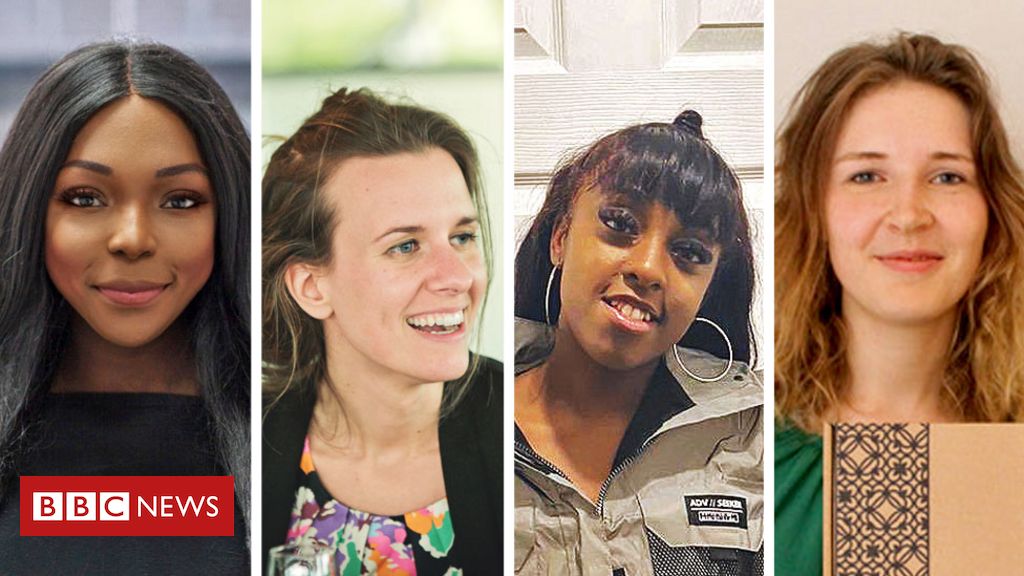The coronavirus pandemic has hit businesses hard, leading to sweeping numbers of redundancies and millions of workers being furloughed.
Despite the downturn, some people have decided to take the brave step of starting a business.
We spoke to four women about why they did it and how their ideas are progressing.
‘I started it on a whim but it’s become like my child’
Natalie James, 30, from Wanstead in East London works in fashion PR. Although she continued working through lockdown from home, she didn’t like the fact that she wasn’t able to pamper herself with her favourite beauty products as all the shops were shut.
Realising “a lot of other people felt the same”, she decided to start a £10-a-month subscription box service called Tingle, which offers a curated selection of beauty, makeup and skincare products sent to your door.
“I started to get cabin fever and hated that the only place I could go to was the supermarket,” Natalie adds about her decision to open a business.
She invested £300 in building her own website on Wix and designing the packaging for the box. She also approached beauty brands and managed to get most products gifted, while others were bought at cost price.
The companies that partner with Tingle get to include information about their brand in each box, along with discount coupons for further purchases.
Natalie says she has had 400 orders to date and made £5,000 in sales, but it has been hard work.
“I do literally everything – I’m staying up until 3am on some nights, but it’s worth it.”
‘I needed something to keep me going through lockdown’
Student Mya Leonie Wander, 20, had always fancied starting her own business and is a “big foodie”.
So in June she decided to start MJ Eats, a part-time Caribbean “soul food” takeaway service, cooking from home two or three days a week.
Mya, who advertises on Instagram, has so far had around 20 orders a week and made £500 in sales. She also says she broke even after just two months.
“I started my business because I needed something to keep me going through lockdown,” she tells the BBC.
She had been a competitive athlete most of her life, but not being able to do sport or find work “took its toll”.
Mya plans to continue running her business part-time and studying for her degree when the new academic year starts in October.
‘I finally had the time to commit to launching a business’
Caroline Haegeman, 25, is studying for a PhD in oncology at Imperial College London.
Part of her work requires her to carry out experiments in the laboratory at university, but her course was put on hold for three months during lockdown and she had to stay at home.
Spending so much time indoors with her partner made her realise that even if they couldn’t go out, the couple needed to have “fun date nights” for the health of their relationship, but there weren’t many activities to do.
So she set up subscription box service Box42 “to bring back the romance”. Each one-off box retails for £33, or £29 for a monthly subscription, and comes with two fun activities following a theme, as well as snacks, non-alcoholic drinks, curated playlists and “mood setters” like candles.
“I started the company during lockdown because that’s when I started really seeing a gap in the market,” says Caroline, who partnered with independent food and drink companies and negotiated wholesale prices on the items.
“Previously, although I’d had different ideas, I’d never had enough time to commit to launching a business.”
Caroline has so far invested £1,100 in the business and her sales total £950. She hopes to break even soon.
‘It started as a necessity and then I decided it was brilliant’
Charlie Pears-Wallace, 34, from Newcastle had come from a sales and marketing background and quit her job just before the coronavirus crisis.
She had hoped to change careers and get a new job that allowed her to use her French, but the pandemic made this very difficult.
But during lockdown she began helping small businesses with their social media strategies and marketing, thanks to word-of-mouth recommendations.
She now works as a marketing and PR consultant under the brand Charliecomms, and says she has brought in enough revenue to break even, pay her bills and put some money aside.
“I guess it started as a necessity and then I decided it was actually brilliant,” she says.
“I think if this year has taught me anything, it’s that you never know what might happen. But I like to think that I’ve safeguarded myself in a way, as I’m not a full-time wage to anyone.”

